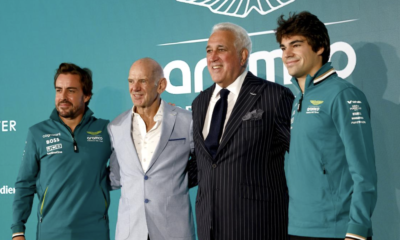GnT
The Drum Circle Revolution: Taal Inc.
Ex-drummer of folk rock band Agnee, Varun Venkit, shares notes on why he quit playing for a rather successful band to start a community based on percussion, Taal Inc. and the growth of the concept of the Drum Circle.
“I bowed down from what could have been a cushy, successful, simple path of being associated with a big commercial musical outfit such as Agnee or I could go deeper into the rabbit’s hole and see where my quest for my inner rhythm, my purpose, would take me…” – ex-member of folk rock band Agnee, Varun Venkit, speaks about his engagement with drum sounds, its ineffable yet coherent association with the rhythm of life, and his percussion revolution, Taal Inc., whose presence is spilling into everyday routine.
Percussionitis (noun) /pəˈkʌʃ(ə)n-itis/
1. A disease of the neo-liberal world that saves people in abject search of ‘wants’ to fill the empty areas in life. It’s an epidemic that engulfs the mind, heart and soul of a person until one is forced to surrender to a certain rhythm of life.
2. A rhythm through which one connects with the universe that predominantly possesses a bottomless coffer of ordeals; a void that can possibly only get filled with the order and synchrony of sonorous drumming.
Varun Venkit, founder of Taal Inc., a community that fosters drumming as a way of life rather than a means to an end, elaborates on the idea of drum circles (one of whose earlier shows were titled ‘Percussionitis’) “…every participant has reported that they ‘forgot everything for the duration they were drumming’. This is something that most Indians might have tried through various meditative practices, but probably not achieved much success with. It is amazing how something externally loud and vigorous can be internally very calming and aligning.”
A Drum Circle is a group of people coming together to drum in harmony and regale in the aura of rhythm (either through hand-drums or percussions). It’s not a competition. You don’t need supernormal skills to be part of one. No grading is involved, and no prizes are to be won; except for a serenity that you take home. Taal Inc., a unique concept that was started in 2004, didn’t face much of a difficulty in well-versing crowds with the pleasure behind organized drumming despite its West-African music flavour. Today, people who partake are stripped off their labels and hats because of which anonymity finds solace in the rising echo of drums. Taal Inc. calls it “… a community activity, a stress buster, a behavioural intervention technique, a healing practice”. Essentially, with Taal Inc., Varun conflated his penchant for clinical psychology to his devotion to percussion.
Having drummed with over 27,000 people across Pune, Mumbai, New Delhi, Bengaluru, Indore, Chennai and Aurangabad in the last four years, one of the major coups for Taal Inc. was in 2010, when Varun conducted a drum circle for underprivileged children at Mumbai University with the First Lady Michelle Obama attending. Varun recalls, “Everything went past very quickly, but what I do remember is Mrs. Michelle Obama’s towering yet very warm personality, her impeccable sense of rhythm and her genuine yet bubbling enthusiasm (is something that) carried the session beautifully.”

First Lady Michelle Obama partaking in a drum circle conducted at Mumbai University
However, a question was begging to be asked – why Varun, drummer of one of India’s most popular indie bands Agnee from 2006 to 2009, set off on his on trail. Ever since he was introduced to drum circles in 2004, he wanted to dive headlong into it. Due to his parallel stint with Agnee, he wasn’t able to dedicate time to Taal Inc. He grew restless and eventually withdrew himself from Agnee to connect with his inner rhythm. On speaking with him you’d realize a certain calculated philosophy on life in every statement. Before Taal Inc. snowballed into what it is today, he individually collaborated with greats including Sivamani, Amit Kilam (Indian Ocean), The Raghu Dixit Project, and tabla maestro Zakir Hussain’s brothers Taufiq and Fazal Qureshi. “I bowed down from what could have been a cushy, successful, simple path of being associated with a big commercial musical outfit such as Agnee or I could go deeper into the rabbit’s hole and see where my quest, a search for my inner rhythm, my purpose would take me…”

Lull before the drum storm
But from being a musician to building a community around percussion was a colossal stride. Despite being conceived in 2004, the years following 2010 saw the concept of Taal Inc. and drum circles come into its own for the admirers, whose numbers also began to grow. Apart from drum circles for social and corporate gatherings, schools started embracing the power of the drums. It had a sponge-like feature that absorbed mundane troubles and promoted well-being. “The difference between folk music and other forms of music today is that folk music was synonymous to life (back) then. It was sung, not for money, but to tell a story (of tremendous hardship, of great love, of harvest, of marriage, of rebellion and so on). This made folk music quintessential for a sense of well-being. It will be a matter of joy for today’s scientific minds to know that much research has been done (also undertaken by Taal Inc Training and Research and FLOW: Social Sciences Research for Health and Well-Being) to corroborate my claims about music (and the creative arts) being good for one’s physiology, one’s mind and one’s emotions.”
Oddly enough, 80% of the crowds who engage in the activity are first-timers. Djembes, a West-African percussion instrument, are used at drum gatherings, which are complemented by Dununs (backing bass drums of a traditional West-African ensemble.) “You do not have to be a musician to be a part of a drum circle. We organize community drum circles that are open to public (anybody from 5 years and upward can participate) once a month in different parts of the city and country.” They don’t even expect audiences to bring their own drums. “Presently, since it is still a growing metaphor and isn’t that famous yet, we provide the drums for every participant present. Eventually, we would like to see a drum in every house. This will help us spread our message far and wide; our message of drumming for health, drumming for unity and community.”
By teaching at schools, selling djembes, talent management and tutoring people digitally through their Learn Djembe Online program, Taal Inc. is expanding incrementally and hopes to build djembe communities in India and other parts of the world. One imagines, after all the teaching and group training, they’ve run out of breath. Surprisingly not, and it is then that Taal Inc. Rhythm Ensemble, the official band, rears its magnificent head to entertain crowds. Its members deliver contemporized West-African folk songs at various venues across India that radiate power-packed beats tied firmly to vocal hooks and startling coordination techniques.

3 Djembe Sounds – Bass, Tone and Slap
Once, a Gurgaon-based drum circle member likened the significance of drumming to alcohol. Initially it tastes like a not-so-pleasant liquid but after few sessions of consumption, you start to overlook the taste and focus on the feeling. Similarly with drumming, once you regulate yourself to a stream of a drum circle, the sound transcends from the ears to the insides of the body. Apparently it’s more addictive.
Classes are usually conducted in Baner and Kalyani Nagar in Pune. If the disarrayed atoms of sound within you are aching for magnetic orientation then answer your queries here. Buy djembes here
Watch Michelle Obama in a drum circle in the video below.
[avideo videoid=”stu7Ud247yY”]











































